Last month I saw this trailer in a movie theater and was captivated:
Yup, I didn’t realize it was for Ready Player One until close to the end. But I couldn’t look away from this trailer, and have watched it a bunch of times since then.
Anytime there’s a cultural phenomenon like this–something that’s so beloved by people I know and so hated by other people I know–I get curious. To wit, the most recent person to recommend Ready Player One (the book) to me was a super progressive lesbian who’s only slightly older than me and not exactly a gamer. So that got my attention.
(Last time this happened, with Fifty Shades of Grey, I couldn’t even get through the first page because of how bad the writing was. So whatever it was that drew so many people to it remained a mystery to me.)
So recently I saw the book in a bookstore, picked it up to read the first few pages, and rapidly found myself totally engaged in it! This was stunning. Sure, there were some boring parts I skimmed, but that’s most novels for you. I was surprised that despite the general shallowness of the book’s overarching themes and philosophy, the writing itself was good, and I wanted to read more.
Having now finished it, I still agree with most of the political critiques of it that people have been making for years. (The ones I don’t agree with are either over minor details that I think the reviewers missed, or else matters of taste–I found the writing interesting, others didn’t.) Even if you read this book in its historical, pre-GamerGate context, it has some troubling things to say about people and about the world. Post-GamerGate, the book becomes extremely tonedeaf, which is a fact not lost on many of its critics. [1]
Ready Player One came out in 2011, the same year that Anita Sarkeesian started her Tropes vs. Women series, which she followed up with Tropes vs. Women in Video Games in 2013, intensifying the online abuse against her to a fever pitch. Then, in 2014, Zoe Quinn became a target after her abusive ex-boyfriend posted a screed against her to incite further online threats and harassment, and the festering cesspool we know as GamerGate truly kicked off. In that context, even a “shallow” and “harmless” book about nerdy boys obsessing over pop culture trivia doesn’t feel so harmless anymore. On the one hand, it can be important to evaluate literature in the context it was originally written. On the other hand, had Ernest Cline been a more socially aware person–or, perhaps, someone other than a white man–he would’ve seen that particular writing on the wall a long time ago. He may not have found the idea of a glorified nerdy trivia contest as appealing.
That said, the book is at least somewhat original in a few interesting ways. For instance:
1. The dystopia is created by an energy crisis.
Yes, that’s not exactly unique, but I can’t count the number of speculative fiction books I’ve read in which dystopian societies have been created by nuclear war, alien invasion, a sudden massive environmental cataclysm, Big Bad Government suddenly becoming super oppressive, man, and so on. Ready Player One goes with what honestly feels like the more likely scenario: our reliance on fossil fuels and disregard for the environment will gradually produce even more extreme income inequality and lower quality of life significantly for everyone except the super-rich. Authorities like government and the police won’t necessarily become any more oppressive than they already are; they’ll just lose their influence. (In the book, the police seem completely absent until the very end [a minor plot point that nevertheless kind of ruins the vibe], and the federal government is mostly a useless figurehead. Wade mentions that he doesn’t bother voting for them because they’re all “reality stars” and the like, which is uh…prescient.)
Corporations, on the other hand, will run the show. Ready Player One is a (possibly unintentional) satire of the “corporations are people” concept in that Innovative Online Industries, the villain of the story, has countless avatars in the OASIS, trying to win the easter egg hunt.
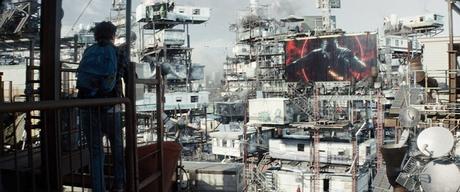
2. Technology has actually improved education.
But one cool thing about the society Wade lives in is that the OASIS has made free, decent public education available to all, because the creator of the OASIS set up a foundation that provides free VR equipment to all students. This is how Wade is able to have a good high school education despite living in the slums, and it’s how he’s able to access the OASIS and compete in the easter egg hunt to begin with. He gives a lot of details about how virtual school works, and while I won’t bore you with the details here, it’s seriously cool.
3. It’s actually one of the least gatekeeper-y sci-fi books I’ve ever read.
Despite what everyone says about the book being inaccessible/irrelevant to anyone without an interest in/obsession with 80s pop culture, I found the opposite to be the case. And to be clear: I have no interest in 80s pop culture, and no personal connection to it, since I arrived as an immigrant in the United States long after the 80s were over and that stuff holds no nostalgic appeal for me, or any other appeal. I kind of hate most of it, actually.
And yet for all the references Wade and his friends drop, he explains all the important ones. Reading the book feels less like being gatekeep-ed (gatekept?) out of a nerd club and more like having someone excitedly rant to me about the stuff they love, and why it’s cool. I actually enjoyed some of the things I ended up learning from the book, such as how to achieve a perfect score in Pacman and how some of the earliest video games were made. I didn’t come out of the book with any more of an interest in playing those games and watching those movies, but I felt like I’d stepped into someone else’s experience for a bit and that was really cool to me.
Furthermore, unlike many SF/F novels that just drop you into an unfamiliar world and force you to figure it out as you go along, Wade actually explains a lot about how his world works, including the energy crisis, how the OASIS works, and what living conditions are like for most people. While this may be boring to some people, I found all of it fascinating! It was like reading a first-person anthropology study. He does the same with a lot of the video games he plays, which was cool for similar reasons even though I don’t personally like those games.
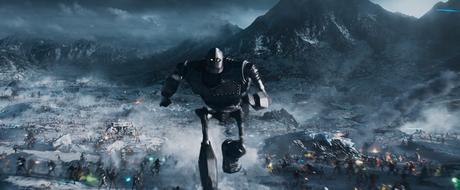
4. Success requires both luck and hard work.
Some critics have focused on the fact that the book implies that having a perfect knowledge of 80s pop culture is the most important thing in the world and that Wade just happens to succeed because of this.
The actual plot is a bit more subtle than that, in some interesting ways that I’ll get to later. A brief recap: in a dystopian future, the OASIS, a free massive virtual world that almost everyone uses, has become many people’s only refuge from the difficulty and hopelessness of their everyday lives. When James Halliday, the creator of the OASIS, dies, he leaves behind an easter egg hunt–a set of challenges for players to complete. The winner will have control of the OASIS for life. Unfortunately, Innovative Online Industries (IOI), a massive and powerful corporation, seems poised to win this challenge and use that to monetize the OASIS and thus prevent most non-wealthy people from being able to use it. Wade Watts and his friends/rivals Aech and Art3mis are determined to beat IOI, whose powerful avatars–the “Sixers”–are constantly on their tails and will stop at nothing to win.
Because Halliday came of age in the 1980s and loved the nerdy pop culture of that time period, that’s what his easter egg hunt centers on. In fact, Wade mentions during the hunt that it’s Halliday’s way of sharing his interests with the world.
But at the time the easter egg hunt started, nobody really cared about that stuff anymore. In fact, Wade mentions that the first time he saw Halliday’s video explaining the challenge, most of the references in it were lost on him. As a result of the easter egg hunt, though, people around the world–including Wade and his friends–started consuming 80s media to try to solve the puzzle, and falling in love with it in the process.
From this perspective, it’s a little deeper than “Nerd Boy Wins the Internet Because He Knows All the References.” Wade and his friends (because–spoiler alert–they win together) win partially because of luck and a little bit of help from others, and partially because they did the fucking work. Wade is too poor to do much besides attend school in the OASIS and take advantage of its free media libraries and has no family who actually care about him or what he’s doing, so he spends years reading, watching, and playing everything he can that may have some connection to the easter egg hunt. And it pays off.
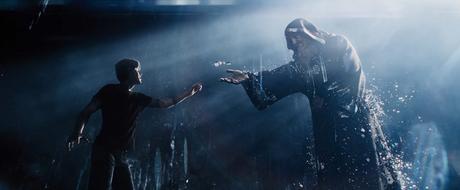
5. The OASIS isn’t ultimately portrayed as unhealthy escapism.
Most science fiction that deals with all-encompassing virtual reality worlds that the majority of the populace uses take a decidedly negative view of them. These systems are usually portrayed as addictive like drugs, causing people to abandon their work/school/family responsibilities in order to spend 24/7 in a fantasy. When these stories have a “happy” ending, it usually involves the VR system being destroyed or otherwise abandoned.
Ready Player One does not take this view. First of all, many people attend school, work, and socialize in the OASIS, so their “real lives” do very much happen there in part. Second, Cline does, I think, explore some of the potential dangers of virtual reality in a more nuanced way than some other writers do. Wade has a period of time when he’s so obsessed with the easter egg hunt that he doesn’t leave his apartment for months on end, and two of the characters, Shoto and Daito (actually Akihide and Toshiro, two Japanese teens), actually met at a program for hikikomori, people who become social recluses and refuse to leave their homes [2].
However, the book doesn’t treat these examples as representative of all OASIS users, all of the time. There’s an interesting moment when Wade encounters an avatar of the late James Halliday after completing the easter egg hunt, and Halliday cautions him about spending too much time in the OASIS: “As terrifying and painful as reality can be, it’s also the only place where you can find true happiness.” It might sound odd, coming from someone who once wrote, “Being human totally sucks most of the time. Videogames are the only thing that makes life bearable.” Yet Wade ends up taking a similar emotional journey–the book closes with Wade and Art3mis (Samantha) finally spending time in person, as Wade observes that “for the first time in as long as I could remember, I had absolutely no desire to log back into the OASIS.”
While talking to Halliday’s avatar at the end, Wade also learns that he alone now has the power to destroy the entire OASIS if need be. “Don’t press it unless you’re absolutely positive it’s the right thing to do, OK?” he tells Wade. “I trust your judgment.”
It’s a more interesting depiction of virtual reality than I usually encounter. After the events of the book are over, I imagine Wade leading a more balanced life–enjoying time in nature and with his friends in the “real” world, but also logging in periodically to the OASIS and having fun shooting monsters or hanging out with people from all over the world.

Like I said, though, I consider most criticisms of the book to be quite valid. So, where do we start?
I think of Ernest Cline somewhat like I think of George Lucas–someone who had some super great ideas but lacked a nuanced enough understanding of human psychology and society to completely pull it off. Ready Player One could’ve made some fantastic commentary about gender, inequality, and a variety of other issues, but largely chose not to. That’s a shame.
There were quite a few aspects of this book that stuck out as shallow, unpolished, or straight-up bad:
1. Gender.
Oh, god, let’s talk about gender in Ready Player One. Yikes.gif. There are, unless I’m mistaken, only four female characters in this book, only one of whom exists as a woman throughout the story. The first is Wade’s aunt Alice, a “malnourished harpy in a housecoat” who neglects him, tries to steal his computer to sell, and summarily dies in an explosion early in the novel. The second is Mrs. Gilmore, a “sweet old lady” who lives near Wade in the trailer park and also dies in that explosion. Her function in the book seems mostly to serve as a foil to Aunt Alice and to give Wade one person to briefly feel sorry for after his home is destroyed in an attempt on his life.
Next we have Aech, Wade’s best friend of years who is actually a Black lesbian. But this isn’t revealed until close to the end of the book, so for all Wade and the reader know until then, he’s a straight white man.
Aaaand then there’s Art3mis, a well-known blogger that Wade nurses an online crush on even though he realizes he knows next to nothing about her and she may look nothing like her avatar. But of course, they soon meet and Complications Arise.
It will surprise no one to know that I hate the way Art3mis is used in this book. Although she could potentially be a really cool character/person, Cline chooses to reveal little about her besides her appearance, competence at video games, and her reactions to Wade, which of course serve to further his character arc. In the middle of the novel, she breaks things off with him for Reasons–to focus on the easter egg hunt, ostensibly–which triggers a months-long depression in Wade. When the evil Sixers achieve the next milestone in the hunt, Wade finally realizes that he’s allowed his girl troubles to distract himself from his goal, so this serves as a wake-up call for him.
At the end of the novel Wade meets Art3mis in person and learns that the reason she didn’t want him to know what she looked like is because…she has a birthmark on her face. This plot point means that Cline gets to conveniently introduce ~~~DRAMA~~~ in the form of a girlfriend who’s insecure about her looks while also ensuring that his protagonist ends up with a conventionally beautiful woman as his prize.
And that he does, by the way. Even though they haven’t spoken for presumably months by this point, the novel ends with Art3mis waiting for Wade in the center of a maze. After winning the easter egg hunt, he finds her there and they kiss and suddenly it turns out that she loves him and he’s her favorite person in the world and so on and so forth.
Aside from all the other problematic aspects of her Art3mis is portrayed and utilized in the book, perhaps my least favorite is this trope where the “love interest” in a story ends up with the main character for no apparent reason other than that she’s the only potential “love interest” in the story and the main character needs to receive a woman as a prize at the end. (See also: Peter and Gamora in Guardians of the Galaxy, almost every other movie with a romantic plot ever made.) It’s never clear what Art3mis sees in Wade, why she wants to be with him, why/how her feelings on that change throughout the book, nothing. She simply allows the relationship to happen, then abruptly ends it, and finally allows it again.
And that’s too bad, because even as written, Art3mis could be really cool, and her story arc could’ve also been really cool. Alas.
She even tells Wade numerous times in the book that he doesn’t really know her and only sees what she chooses to present within the OASIS. It would’ve been interesting if they met in person earlier in the novel, and Wade actually had to struggle to reconcile everything he projected onto her with who she actually is, and tried to make the relationship work in all of its beautiful messiness. Instead, everything seems to just work out for him romantically because he wills it so.
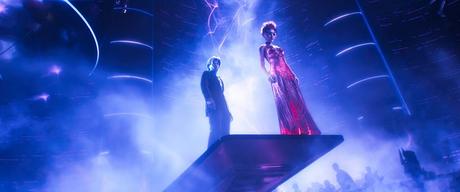
A lot of Wade’s cringey interactions with Art3mis can be chalked up (and many people do chalk them up) to adolescence, but a good writer would gently challenge that even in the writing of it. Besides, Wade’s not the only one in this book who gets obsessively fixated on a woman he’s not even with. Towards the end, we learn that the James Halliday and his best friend Ogden Morrow, with whom he worked for many years on the OASIS and other projects, had a huge falling-out before Halliday’s death because of–what else?–Halliday’s unrequited love for Morrow’s wife. He stopped speaking to Morrow out of “overwhelming jealousy.” These are adult men.
Lastly, I want to specifically address the really transphobic moment that happens when Art3mis and Wade are joking around about how he doesn’t know who she really is or what she looks like in real life. He asks her, “Are you a woman? And by that I mean are you a human female who has never had a sex change operation?”
This transphobic statement doesn’t serve to advance the story in any way, so I can only assume it’s there because of Cline’s own beliefs, or his beliefs about how other people are. Given how gender-fluid young people today are, I don’t see why, in 2045, Wade would say this.
Cline could’ve had Art3mis challenge the statement in her usual wry and cocky way–“And what if I were a human female who has had a sex change operation?”–but instead she just says, “I am, and have always been, a human female.” And the conversation moves on.
There’s no excuse for Cline to write this.
2. Race.
More yiiiiiikes. There are, as far as we know, three people of color in this book, and one is only revealed as such at the end. The other two, Shoto and Daito, are relatively minor characters of Japanese origin who are literally just a list of Japanese stereotypes. Yes, it’s as bad as you think. They constantly refer to people as having “no honor” and bow to others in greeting, and their avatars of course commit suicide (referred to in one case as seppuku, oh god, why).
There’s no way that Cline actually thinks that actual Japanese people act this way, given his in-depth knowledge of modern Japanese culture. It’s possible that the characters act that way because they’ve chosen to make their avatars look like samurai, I don’t know. In any case, it’s a bowl of yikes.
The third person of color is of course Aech, who finally reveals herself to Wade at the end, fearing his reaction. Although momentarily feels betrayed that she had her identity from him, he quickly accepts it, later reflecting that he loves her no matter what: “None of that had changed, or could be changed by anything as inconsequential as her gender, or skin color, or sexual orientation.”
But those things aren’t “inconsequential”! Come on, it’s not nearly far enough in the future for that. I wish that Wade had instead said that he loves his friend and respects her even more knowing how much more she had to overcome, or at least something that acknowledges who she is.
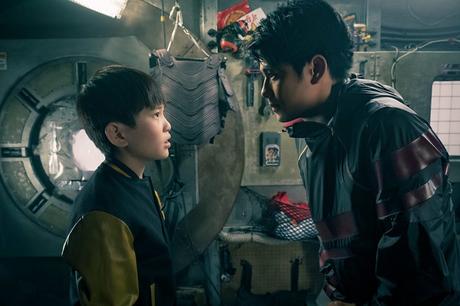
3. The uses and abuses of nostalgia
Nostalgia is, obviously, a key theme of the book. In many ways it’s its organizing principle. The book is about a dead man’s nostalgia-fueled challenge, and its most passionate fans are people who share that nostalgia.
But the full implications of that are mostly left unexplored. There’s a point at which Wade wonders why Halliday, who claims to have had such an awful childhood, would recreate his hometown so painstakingly and lovingly within the OASIS and make it a crucial part of the easter egg hunt. I wonder that too, even though I know that that’s exactly how nostalgia often works.
Then again, I also think that critics of Ready Player One often judge the characters as if they were living in our own world, right now, rather than decades in the future. Wade and his friends are not whiny manchildren who think that the 80s had the best movies ever, dude. They’re people who grew up in poverty, with only a fraction of the freedom and resources that Halliday had growing up as a teenager in his beloved 1980s. They can’t really be said to be nostalgic given that they never actually experienced any of that.
That said, the book never really addresses the potential consequences of all of that looking backwards. Near the beginning on the novel, Wade tells Art3mis that if he wins the game, he wants to use the money to build a spaceship for himself and his friends, and possibly leave Earth altogether in search of something better. Art3mis is surprised that he’d so quickly abandon the Earth to its problems, and says that she’d use the money to try to fix things. (Then, in one of my favorite moments, Wade asks her if she really thinks she could “fix all the world’s problems,” and she says, “I don’t know. Maybe not. But I’m gonna give it a shot.”
Towards the end he seems to be more civically minded, but there isn’t really any direction to it. The world still is what it is. Innovative Online Industries still exists, and will presumably continue to keep murdering people and indenturing them and such (the sudden appearance of the police to arrest Sorrento, their head of operations, notwithstanding).
Which brings me to my next point:
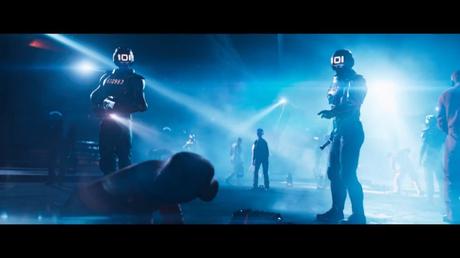
4. The ending doesn’t follow.
It honestly seems really unrealistic that Wade and his friends won, and that IOI is just a non-issue now, and Art3mis wants to be with Wade despite avoiding him for most of the book, and–right. This book is a male wish-fulfillment fantasy. It’s very analogous to Jupiter Ascending in that way, which is why the divergent responses these two works have received in the media is very telling. [3]
In the world that Cline sets up, it seems impossible for anyone to actually beat the Sixers, considering that they cheat at the game and have seemingly infinite funds and avatars. On the one hand, that sounds like a typical underdog story, but on the other hand, in such stories the underdog typically succeeds by exploiting their enemy’s weakness. (See: the Rebels and the Death Star, Katniss and the rich kids she fights in the Hunger Games, the Avengers and…whatever they’re presumably going to do in the next movie.) The Sixers supposedly have a weakness (everyone keeps talking about how they don’t really love nerd culture the way they do), but that’s not why they lose. They lose because Ogden Morrow, Halliday’s old pal, finds Wade and his friends and offers them sanctuary, and because Wade has an “extra life” from a side quest he completed because he thought it was the main quest. All of that seems rather…incidental.
And, sure, it doesn’t have to be realistic. Jupiter Ascending wasn’t either, and people still loved it. I still liked Ready Player One, too.
Ultimately, what makes the book so fascinating and compelling for me is the central question that it poses: if your world changed irrevocably for the worse, what would you want to remember? And if you had a virtual reality in which you could build a memorial to that world, what would you build?
In Ready Player One, James Halliday’s answer–and Ernest Cline’s–is 1980s American pop culture, and a certain sort of Ohioan suburbia. While that’s easy to dismiss if those things don’t resonate for you whatsoever, we each get to answer those questions however we want, along with some nerdier ones: how would you use virtual reality to share your particular niche love with others? What sort of game or challenge would you design to get them to love it too?
And this is where I again wish this story had been written by someone else. Ernest Cline is, I’m sure, an interesting person, but he was born in 1972 in Ashland, Ohio, so this is exactly the story you’d expect. I couldn’t help but think about a Ready Player One written by Nnedi Okorafor [4], in which a bookish girl from the slums of Lagos finds herself on a quest inside the OASIS that has her battling monsters from West African myths and folklore, relying on her encyclopedic memory of the stories she’s been reading since childhood. Or one written by Ken Liu [5], in which a teenage history buff from rural Gansu province enters the OASIS and discovers a portal to a perfect recreation of pre-Revolution China, where he must travel backwards through the dynasties and use everything he’s managed to learn about their cultures in defiance of the law, while being pursued by the avatars of guobao agents.
But Ready Player One is what it is. Yet I’m still captivated by it, because it made me imagine the possibilities I just described, and many more.
[1] https://www.vox.com/culture/2018/3/26/17148350/ready-player-one-book-backlash-controversy-gamergate-explained
[2] https://www.nippon.com/en/currents/d00332/
[3] https://www.themarysue.com/ready-player-one-jupiter-ascending/
[4] http://nnedi.com
[5] https://kenliu.name
Brute Reason does not host comments–here’s why.
If you liked this post, please consider supporting me on Patreon or Ko-fi!
